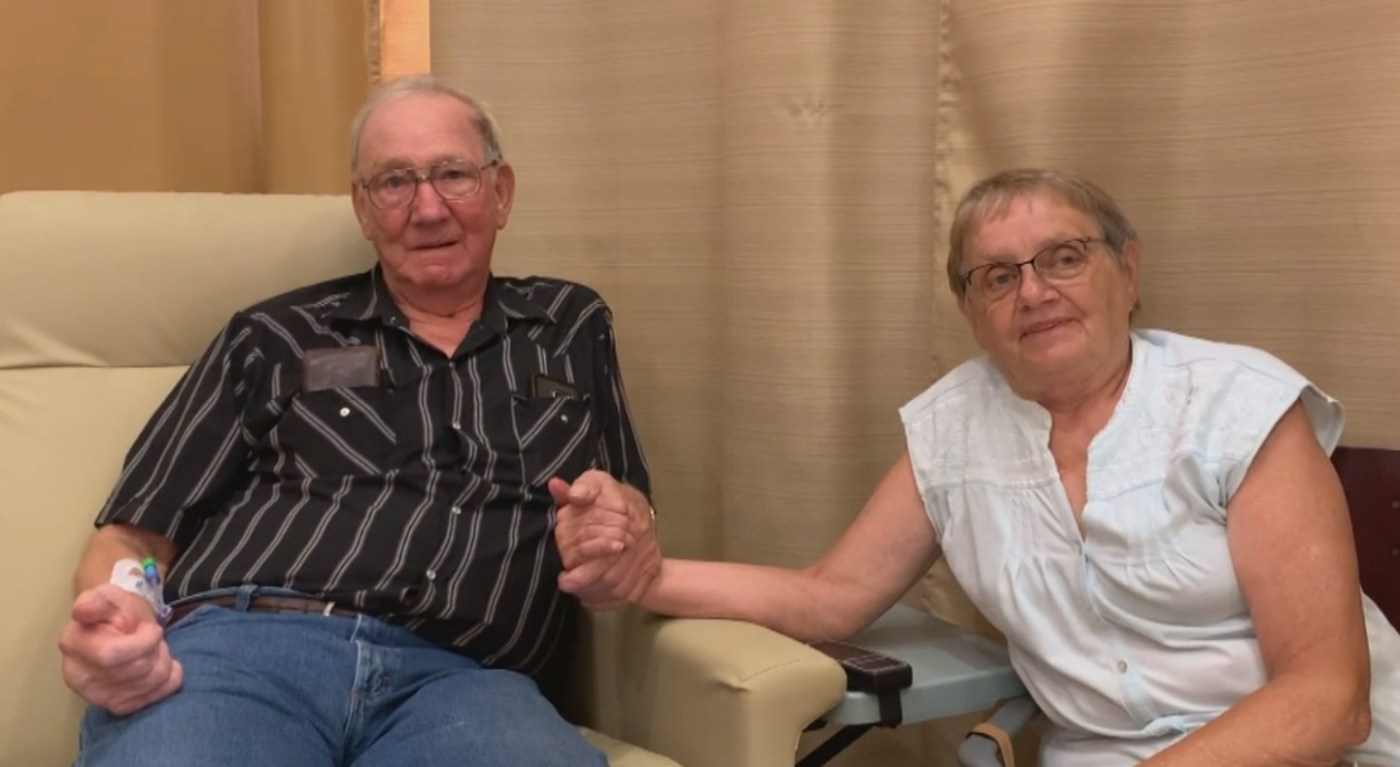For more than 90 years, VA has been a leader in cancer research and treatment, and continuously worked to improve the lives of Veterans and all Americans. One treatment – Precision Oncology – was once a regional program. Today, it has significantly grown over the past several years and is now used in almost every VA oncology practice nationwide.
VHA’s Executive in Charge Dr. Richard Stone explained during a virtual conference, hosted by the American Society of Clinical Oncology, that Veterans are particularly vulnerable to certain types of cancer due to their service in various challenging environments around the world. At VA, approximately 50,000 Veterans are diagnosed with cancer each year. Of these, about 15,000 are prostate cancer and 7,700 are lung cancer.
What is Precision Oncology?
VA’s National Precision Oncology Program provides targeted cancer care for Veterans based on their genetic profiles. More than that though, it facilitates access to new therapies through clinical trials. Patients can agree to have their clinical, genetic and imaging data shared with researchers to help advance cancer care. All research samples are coded and contain no personally identifying information.
When Veterans are given a cancer diagnosis, their VA physician may take a small sample of their tumor and send it to qualified laboratories for targeted genomic sequencing. This process can determine the DNA sequence of genes that are considered important in understanding and treating certain cancers. Sequencing can identify specific cell mutations that cause cancers to grow, allowing the patient to benefit from drugs that are targeted to those mutations, or to potentially take part in clinical trials of new drugs targeted toward those specific mutations. The program provides research, clinical trials and innovative solutions through virtual care.
Army Veteran Roger Lupkes lives in rural Minnesota and benefits from virtual care cancer technologies. The Vietnam Veteran was diagnosed with prostate cancer, lung cancer, and then colon cancer over the last 18 months. Because of the complexity of Lupkes’s case, he was matched with Dr. Michael Kelley, VA’s National Program Director for Oncology based in Durham, North Carolina.
Long-Distance Relationship
Lupkes, and his wife Henrietta, make the nearly 100-mile drive from their rural home to the Sioux Falls VA Medical center for appointments. Once there, local VA staff and the Lupkeses link up with Dr. Kelley, who is 1400 miles away, through video equipment for a “tele-health” visit. VA’s ability to deliver care through “tele-oncology” sessions opens more options for Veterans like Lupkes and others across the country.
Partners in Care
The delivery of world class tele-oncology services is made possible in part thanks to VA partners at the Bristol Myers Squibb Foundation. The foundation pledged $4.5M in grant funding, facilitated by the VA Secretary’s Center for Strategic Partnerships.
Accessible targeted cancer care will help expand specialized oncology care in a virtual setting. Additionally, it helps cancer care teams provide a positive patient experience during tele-oncology visits. The Lupkeses describe the treatment as stellar and the overall experience as comforting.
Another example of industry support includes the Prostate Cancer Foundation’s $50-million commitment to work with VA in building Centers of Excellence across the country. The partnership provides services that help prevent, screen and promote research.
VA is also collaborating with the IBM artificial intelligence (AI) program, “Watson,” for genomics. This partnership supports Veterans suffering from late stage cancer. More than 2,700 Veterans have benefited from this collaboration. Based at a central hub in Durham, North Carolina, the public-private partnership’s oncologists and pathologists receive tumor samples from patients nationwide to sequence the tumor’s DNA. Watson then interprets the genomic data, identifies relevant mutations, and suggests potential targeted treatment options by cross-referencing findings against medical literature on approved and investigational therapies.
According to IBM and VA, more than one-third of the patients treated through this program are from rural areas, with limited access to trained oncologists and personalized cancer care. The department’s precision oncology program primarily supports stage-4 cancer patients who have exhausted other treatment options.
Veterans should have access to the most innovative, quality healthcare services, and VA is a demonstrated leader in providing these practices. To learn more about precision oncology treatment options, contact your VA provider.
More information
For more on VA’s Precision Oncology Program visit: https://www.cancer.va.gov/CANCER/NPOP.asp
See Dr. Richard Stone, VHA Executive in Charge, discuss Precision Oncology Partnerships and teleoncology.
Topics in this story
More Stories
Seven U.S. Army soldiers, one Army Reserve soldier and two Veterans are representing Team USA at the 2024 Olympic Games in Paris, which begins today.
Study underscores important role COVID vaccination can have in protecting Veterans from infection and reducing long-term health consequences
Columbia VA’s robotic surgery teams completed their 800th robotic surgery and are on schedule to hit 1,000 by the end of the year.






